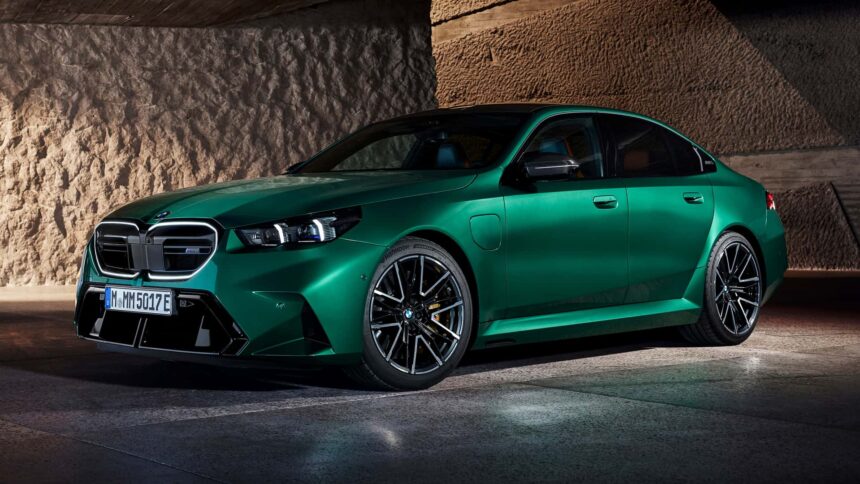The BMW M5 has been a subject of controversy due to its hefty weight, with the new model tipping the scales at 5,390 pounds. This weight gain can be attributed to the addition of nearly 900 pounds of hybrid components over the previous generation, making the car substantially heavier. The Internet has not been kind to the sports sedan, with many criticizing BMW for the increase in bulk.
In a recent interview with Bimmer Today, Frank van Meel, the head of BMW’s M division, addressed the criticism surrounding the M5’s weight. He defended the decision to go the hybrid route, stating that the car was designed in such a way that the weight is not noticeable when driving. Van Meel urged people not to rely solely on numbers and data, but to actually experience the car firsthand before passing judgment.
The decision to electrify the M5 was driven by the need to meet strict emissions regulations while keeping the V-8 engine alive for another generation. While some may have preferred a downsized inline-six engine, BMW believed that the hybrid setup was the best way to achieve both performance and efficiency.
Despite the backlash, van Meel is confident that the combination of a twin-turbo V-8 engine and an electric motor from the XM model will deliver the performance expected from an M5. He reassured enthusiasts that the engineers at BMW knew what they were doing and that the car’s weight would not be a hindrance to its performance.
While the high curb weight may be a cause for concern, electrification was seen as a necessary step to comply with regulations. Comparisons were drawn with Mercedes’ AMG lineup, where the V-8 engine is being phased out in favor of smaller, more efficient powertrains. BMW’s decision to go the hybrid route may not please everyone, but it ensures that the M5 remains a competitive and relevant model in today’s automotive landscape.







